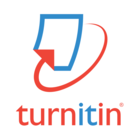The Role and Teacher's Understanding in Implementing Curriculum on Vocational High School
Abstract
This study aims to describe the teacher's understanding and how teacher’s role in the implementation of the 2013 curriculum. This research uses a descriptive qualitative research design with case study. Research data supported by research tools in the form of audio-visual and field notes. The informants are the headmaster, the vice minister of curriculum, teachers, and students who carry out learning using the 2013 curriculum at SMK 1 Kertosono. Based on the results of the analysis, it is known that the understanding of teachers is not so fully understood the 2013 curriculum as a whole. The role of teacher for implementation of the 2013 curriculum conducted by teachers including: (1) Planning, teachers in making learning plans based on the results of teacher group discussions conducted between teacher peers and the internet; (2) Implementation, the implementation of learning conducted by the teacher includes three activities, namely the introduction, main, and closing activities; and (3) Assessments, assessments made by teachers are authentic assessments, which include; assessment of attitudes, knowledge and skills.
Keywords
Full Text:
PDFReferences
Hidayat, S. 2013. New Curriculum Development. Bandung: PT. Remaja Rosdakarya.
Hurotul ‘Aini, Winda. 2014. Teacher Readiness in Applying the 2013 Curriculum to Economics Subjects in High School. Thesis not published: . Malang: PPS UM.
Kosasih, E. 2014. Learning Strategies and Learning Implementation of the 2013 Curriculum. Bandung: Yrama Widya.
Kwartolo, Yuli. 2002. Critical Notes on Curriculum Based Kompetensi. Jurnal Pendidikan Penabur. 1(1): 1-9.
Mulyasa, E. 2013. Development and Implementation of 2013 Curriculum. Bandung: Remaja Rosdakarya.
Nurmalasari, Riana; Puspitasari, Poppy; Mardji; Hartiningtyas, Lativa; Suswanto, Hary. 2016. The Role of Sarjana Mengajar’s Teachers for Student’s Outcomes on Vocational High School. AIP Conference Proceedings. 1778 (030042): 1-3.
Nurmalasari, Riana; Mardji; Andoko. 2016. Implikasi Program Sarjana Mengajar pada SMK di Jawa Timur. Jurnal Pendidikan, Teori, dan Pengembangan. 1(7): 1376-1382.
Oktaviastuti, B., Dardiri, A., dan Nindyawati. 2016. Improving Technical Skill of Vocational School Engineering Students Through the Implementation of Industrial Work Practices. Jurnal Pendidikan: Teori, Penelitian, dan Pengembangan. 1(4): 681-685.
Oktaviastuti, B., Dardiri, A., dan Nindyawati. 2016. The Correlation Between Industrial Support and Vocational Attitude Toward The Increasing of Student’s Technical Skill on Building Drawings Engineering. AIP Conference Proceedings. 1778
Partin, R. 2009. The Classroom Teacher’s Survival Guide (3th ed). San Fransisco: John Wiley&Sons.
Rohman, M. 2012. Curriculum Character: Reflection and Proposal Solutions to KBK and KTSP. Jakarta: Prestasi Pustakaraya.
Rohmanudin. 2014. Teachers' Understanding of the 2013 Vocational Curriculum and its Implementation in the Vocational Mechanical Engineering Program. Thesis not published. Malang: UM.
Sariono. 2014. Curriculum 2013: Golden Generation Curriculum. Jurnal Dinas Pendidikan Kota Surabaya. 3(1): 1-9.
Soedijarto. 2004. Curriculum, Evaluation System, and Education Personnel as a Strategic Element in Organizing a National Teaching System. Jurnal Pendidikan Penabur.3 (3): 28-37.
Sudjimat, Dwi. A. 2014. Vocational Learning Planning. Malang: UM Press.
Sujati, H. 2015. Analisis Kebijakan Penataan Guru PNS. Prosiding Universitas PGRI Semarang 2015. 367—373.
Sukmadinata, Nana Syaodih. 2013. Curriculum Development, Theory and Practice. Bandung: PT. Remaja Rosdakarya.
Sumarno, Wustqa & Dhariva, Urwatul. 2014. Development of Learning Devices on High School Calculus Material Class XI. Jurnal Riset Pendidikan Matematika. 1(2): 257-267.
Toht, Peter. 2012. Learning Strategies and Style in Vocational Education. Acta Polytechnica Hungarica. 9 (3): 195-216.
Wagiran. 2007. Learning Innovation in the Preparation of the Future Workforce. Jurnal Pendidikan Teknologi & Kejuruan. 16(1): 43-55.
Wen. 2003. Future of Education. Batam: Lucky Publishers.
DOI: http://dx.doi.org/10.17977/jpp.v26i2.10199
Refbacks
- There are currently no refbacks.
Copyright (c) 2019 Riana Nurmalasari, Blima Oktaviastuti, Annisau Nafiah

This work is licensed under a Creative Commons Attribution-NonCommercial 4.0 International License.
INDEXED BY | TOOLS | PLAGIARISM CHECK | ARTICLE TEMPLATE |
| Research Article Non Research Article |

JPP licensed under a Creative Commons Attribution-NonCommercial 4.0 International License.



_3.png)


11.png)



_2.png)
_.png)